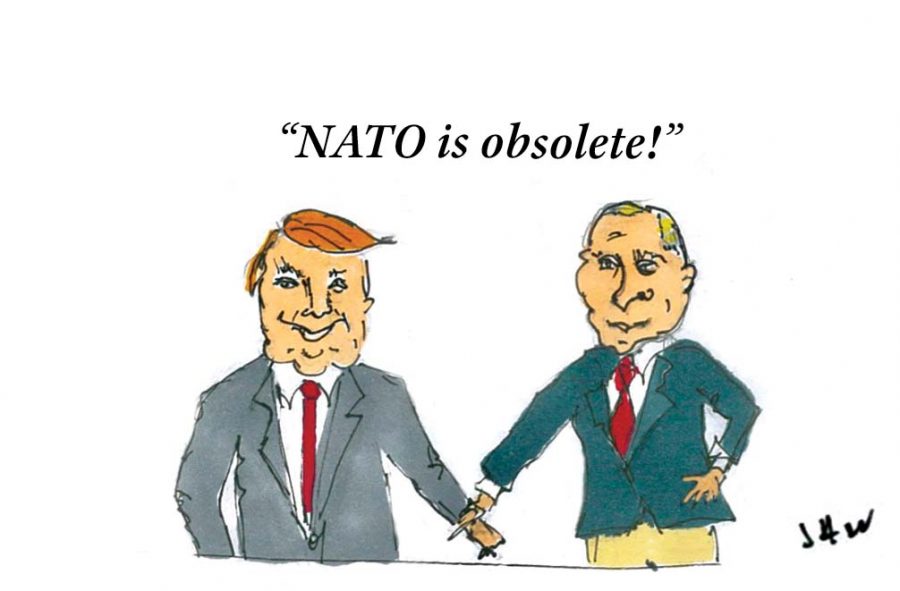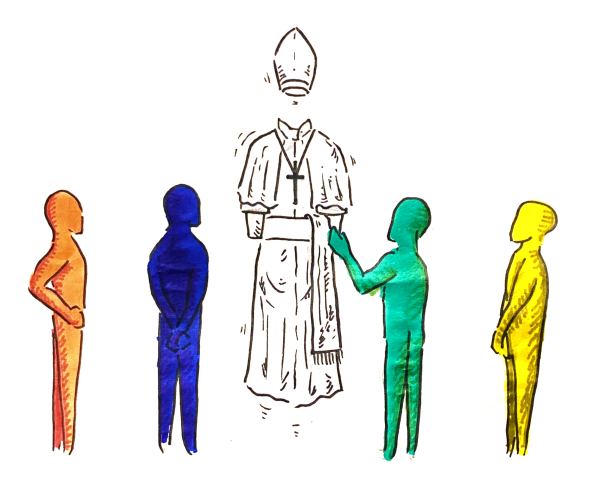NATO – Defending Democracy for 70 Years
The North Atlantic Treaty Organization (NATO) was founded in 1949 by twelve Atlantic democracies with the intention of providing mutual military protection from the USSR. Although the Berlin Wall fell 30 years ago, NATO remains vital to safeguarding the interests and security of democracies in the North Atlantic and should never cease to be a major political influence in Europe and North America.
Part of what guides NATO’s mission is that member nations must agree to comply with certain pivotal standards, created during its founding. NATO established these as three core elements to which any aspiring member must commit, the first being that “The Parties may, by unanimous agreement, invite any other European State in a position to further the principles of this Treaty.” The United States and Canada are the only non-European countries in NATO; however, both have significant historical ties to Europe because of their politics and culture. The requirement that NATO members must have a common aim has and will ensure that the countries share the common goal of eliminating threats to human rights and assisting in the creation of democratic governments.
With this shared intention, it became apparent that new members must have a Democratic system of government in place with NATO demanding member states hold free and fair elections. This qualification definitively sets them apart from other worldwide organizations like the United Nations, which chooses to stay neutral regarding systems of government.
This rule was created in light of the events that took place during the Second World War. One consequence of the war was that the USSR’s sphere of influence began to encroach upon large subsections of Europe; NATO’s main ambition was to counteract this. With the USSR now dissolved, many wonder what purpose NATO serves in the 21st century, to which there is a clear answer.
In the days of the Cold War, the Soviet Union loomed over Europe and, by extension, the United States. Many feared its strength and apparent disregard for human rights, qualities which saw them victorious against Nazi Germany in World War Two. Although the USSR was dissolved in 1991, the Russian Federation, its de facto successor, inherited the Soviet military and nuclear arsenal. Modern Russia not only possesses the Soviet Union’s military prowess but also the qualities that motivated the harsh division of Berlin, or more recently, the annexation of the Crimean Peninsula. The fall of Communism only took with it the economic theory but left behind the ugliest side effects of the political philosophy created by Karl Marx.
With the dawn of the 21st century, new threats to peace have made themselves known. ISIS, for instance, has demonstrated the ability to reach a new, impressionable generation and indoctrinate them with its sickening perversion of Islam. These malevolent values are eerily familiar to those of the Soviet Union during the Cold War.
Although the threat of ISIS is ongoing, NATO has proven its ability to take action against terror. In 2001, in response to the heinous attack on American soil, NATO was quick to respond in full force. Article 5 of the North Atlantic Treaty states, “an armed attack against one or more of them in Europe or North America shall be considered an attack against them all.” This article was never enacted in the Cold War; however, NATO deemed 9/11 an event critical enough to use this provision.
This is why NATO’s ability to combat threats is not limited to the Soviet Union. NATO took action after the events of September 11 by spearheading the war in Afghanistan, an ongoing mission to suppress terrorist activities there. In an interview with the The New Yorker, Douglass Lute, the former ambassador to NATO, said, “NATO has over twelve thousand troops still stabilizing Afghanistan, training Afghan forces, and making sure that Afghanistan does not revert to a terrorist safe haven.” Although many have criticized the extended length of the conflict in Afghanistan, Lute defends it, implying that a sudden withdrawal of NATO’s forces from the region would invite the return of Islamic militant groups like the Taliban.
Despite NATO’s focus on the Middle East, it continues to defend other areas of the world in peactime and wartime. This is partly due to NATO’s adaptability. In the same interview Lute remarked that, “NATO is a ground power. It’s a maritime power. It’s an air power, and NATO has very substantial special operations forces.” Here, Lute is not only referring to the diverse skill set of the NATO armed forces, but also its modern technology.
NATO has played a key role in overcoming threats to the freedoms outlined in the preamble of the North Atlantic Treaty, which states the alliance’s aim is “to safeguard the freedom, common heritage and civilisation of their peoples, founded on the principles of democracy, individual liberty and the rule of law.” NATO’s actions over the last 70 years to meet this goal have been extraordinarily successful in bringing peace to not only Europe but the whole world. As new groups attempt to squander the democratic values of the West, NATO becomes more essential to protect the values declared by its members states, whether or not they face an organized threat like the Soviet Union, or small violent insurgencies like the ones seen in the Middle East.






